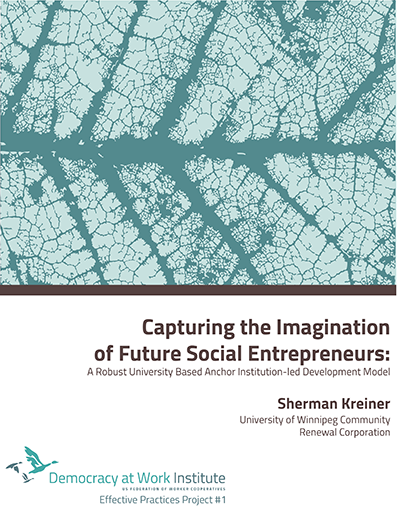Policies for a Shareable City: A Sharing Economy Policy Primer for Urban Leaders
Cities are built for sharing. It’s what makes cities engines of prosperity, innovation, and cultural exchange. Well connected cities have the unique capacity to raise per capita production and innovation while using dramatically less energy. For this reason, cities may be our best hope for achieving widespread prosperity within the earth’s natural limits. We believe that fostering the growth of the sharing economy is the single most important thing that city governments can do to boost prosperity and resilience in times of economic crisis and climate change.

 This is an overview of the University of Winnipeg's anchor-led model for community economic development. It positions the Winnipeg model as a robust example of an anchor institution strategy, and includes a broad survey of US worker cooperative development and movement-building efforts of the last 30 years.
This is an overview of the University of Winnipeg's anchor-led model for community economic development. It positions the Winnipeg model as a robust example of an anchor institution strategy, and includes a broad survey of US worker cooperative development and movement-building efforts of the last 30 years.